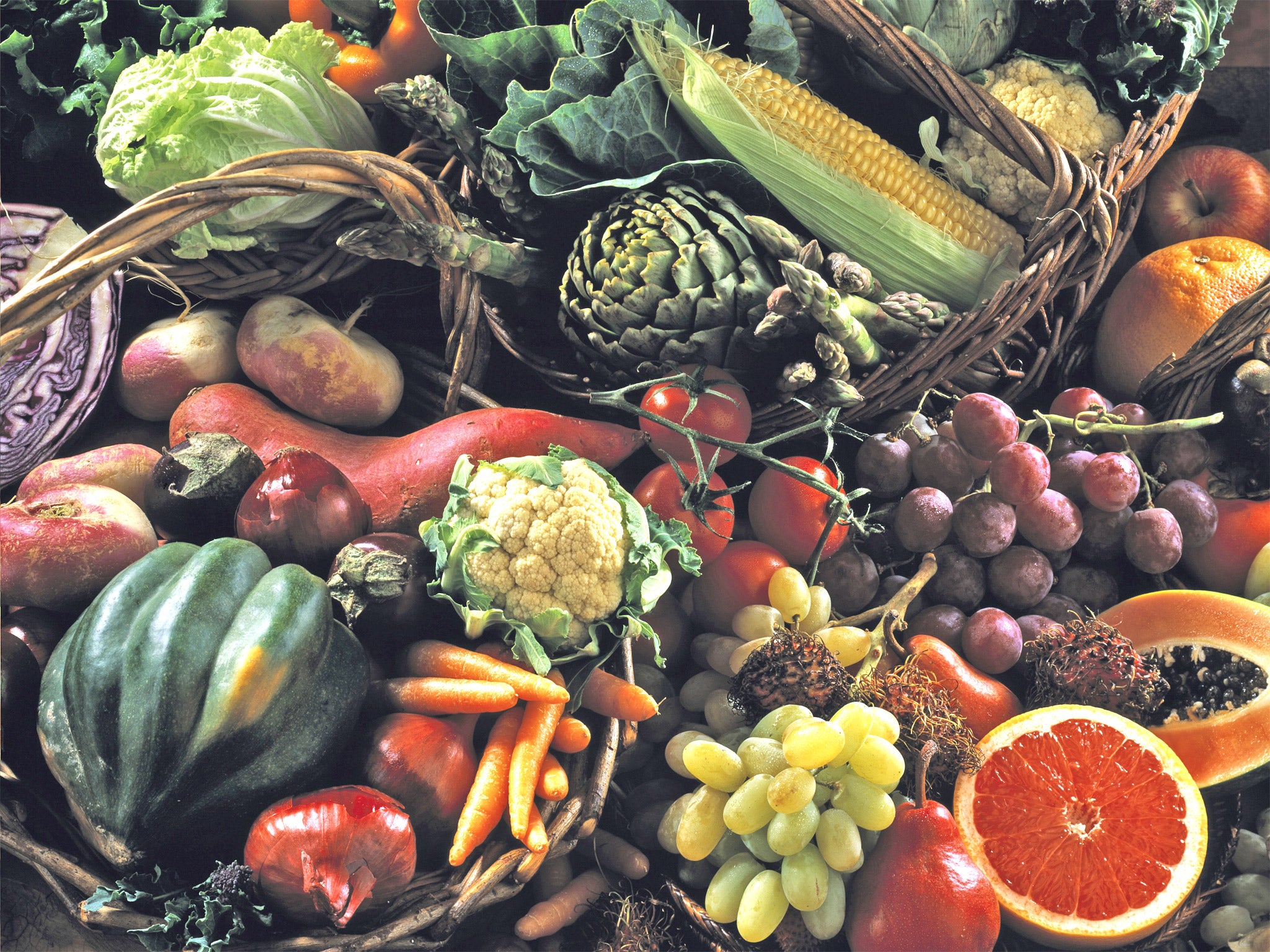Eat home-grown to boost Fruit and Veg UK Plc, says Owen Paterson
Environment minister laments quantity of food imports and urges shoppers to buy British but UK farming needs long-term investment

Your support helps us to tell the story
From reproductive rights to climate change to Big Tech, The Independent is on the ground when the story is developing. Whether it's investigating the financials of Elon Musk's pro-Trump PAC or producing our latest documentary, 'The A Word', which shines a light on the American women fighting for reproductive rights, we know how important it is to parse out the facts from the messaging.
At such a critical moment in US history, we need reporters on the ground. Your donation allows us to keep sending journalists to speak to both sides of the story.
The Independent is trusted by Americans across the entire political spectrum. And unlike many other quality news outlets, we choose not to lock Americans out of our reporting and analysis with paywalls. We believe quality journalism should be available to everyone, paid for by those who can afford it.
Your support makes all the difference.Shoppers are regularly urged to “Buy British” to help UK manufacturing – and now we’re being asked to switch to home-grown fruits and vegetables to boost the rural economic recovery.
Environment Secretary Owen Paterson on Tuesday challenged consumers to end the country’s reliance on imported food, claiming that £2bn of the £8bn worth of fruit and vegetables shipped in last year could be produced in Britain.
This would reverse a trend that has seen food imports soar in the past decade as supermarkets demand ever cheaper produce and customers seek out their favourite ingredients all year round.
Britain grows just 30 per cent of the cucumbers it eats, down from 55 per cent in 2000, while cauliflower production as a proportion of consumption has halved – to 32 per cent – over the same period.
Just 19 per cent of the tomatoes Britain eats are grown domestically and 4 per cent of salad onions, and the country has a strong allegiance to New Zealand lamb, French apples, Spanish cucumbers and Danish bacon.
“We have a top-class fruit and veg sector which produces everything from green beans to strawberries, yet we imported £8bn of fruit and veg in 2012,” Mr Paterson told the Oxford Farming Conference on Tuesday.
“We can’t grow mangoes or pineapples, but we can encourage UK consumers and food businesses to buy Scottish raspberries or Kent apples. By buying seasonal fruit and veg we can improve the nation’s health, help with the environment and boost the economy.”
Mr Paterson warned that the task of producing more food would be made considerably harder without a relaxation of the stringent rules surrounding genetically-modified crops, which are essentially banned in Europe while being widely grown in North and South America.
“Europe risks becoming the Museum of World Farming as innovative companies make decisions to invest and develop new technologies in other markets,” he said.
Mr Paterson pledged that the Government will help UK farmers sell their produce abroad, and said it had already instructed schools, hospitals and other public bodies to buy more food locally.
At the moment, imports account for about 40 per cent of Britain’s total food consumption, with the bulk of the rest coming from 25 countries. The Netherlands is the biggest foreign supplier, providing 5.9 per cent of the total food consumed, followed by Spain at 5.1 per cent, France (3.3 per cent), Ireland (3.2 per cent) and Germany (2.6 per cent).
The Environment Secretary’s challenge to produce a quarter of imports in Britain was broadly welcomed, although experts said it remained to be seen whether it would be met. Friends of the Earth food campaigner Vicki Hird lamented the low levels of investment in “UK Fruit and Veg PLC” in recent decades, pointing out that grants were even available to cut down apple trees in the 1980s and 1990s as supermarkets favoured imports.
Peter Melchett, policy director of the organic farming charity the Soil Association, welcomed the Environment Secretary’s words, but said that consumers must learn to eat far more seasonally.
“We could easily scale up fruit and veg production. We’ve seen a huge loss of British orchards over the last 30 or 40 years and they were wonderfully productive – because it was cheaper to buy Golden Delicious from France. But there has been a backlash against the soggy stuff and a real resurgence in British Apple production,” said Mr Melchett.
Phil Bicknell, chief economist at The National Farmers Union, said Mr Paterson’s push to increase production was “very positive” but cautioned that “just talking about it doesn’t mean it will happen”.
He said farmers would benefit from a change in the “retail relationship”, arguing that the fact that supermarkets focus on low prices and short-term contracts of just a year or two does not encourage the kind of long-term investment needed in areas such as poultry sheds and greenhouses.
To make matters worse, farmers are reeling after terrible weather in 2012 and the first half of 2013 badly damaged crops and, in turn, profits, Mr Bicknell said.
The farm industry needs to rise to the challenge of adapting to more volatile times, he said, and the Government needs to provide reassurance, for example in the form of financial support through the Common Agricultural Policy.
Join our commenting forum
Join thought-provoking conversations, follow other Independent readers and see their replies
Comments